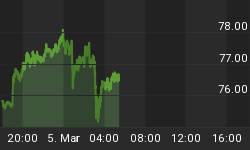The share market crashes that reverberated around the world confirmed the prejudices of many (some of whom are paid to know better) as to the irrationally of markets. There was much gleeful parroting of Keynes' misleading comments stating that share markets were nothing but casinos that graphically demonstrate the excesses of capitalism. Of course there has been a great deal said in recent years about the efficiency of markets and the cause of fluctuations. Since the 1960s the efficient-market hypothesis has held sway among a great many people. This thesis holds that markets are extremely efficient in the sense that all information about the past, the present and the future are swiftly built into share prices.
This view is derived from the model of perfect competition in which all market participants share the necessary information, resources are never misallocated, prices never distorted and adjustments are instantaneous. This is a thoroughly mechanistic and fallacious way of looking at the economy and explains why the theory has been unable to account for, let alone explain, market crashes.
In brief, the market-efficiency theory asserts that stock markets are perfect. If these markets had attained the degree of perfection that advocates of the market-efficiency theory claim for them then they would cease to be markets. It is little realised, even among a large number of economic commentators, that markets exist because certainty does not. It is because we live in an uncertain world in which the future is always unknown (though we can usually form sound expectations of what it will be like, at least in the short run ), where knowledge is ephemeral, subjective, widely dispersed and continuously changing and where expectations are always clashing and plans failing that the market comes into existence as a spontaneous coordinating process.
Two conclusions can be immediately drawn from the market-efficiency theory: (a) it is impossible for people to consistently make profits on the market; (b) a less obvious conclusion is that prices are never falsified or distorted and thus cannot contain misleading information. As for the first conclusion, a small minority of investment advisors like Peter Lynch and Warren Buffet, for example, have out-performed the market over a long period. The second conclusion founders on the little known but vital fact that credit expansion distorts prices and creates malinvestments.
By expanding bank credit we distort investment decision-making, we also create surplus 'investment funds' that generate speculative frenzies. Shares (which are really titles to land and capital goods) become overpriced as speculators inflate their values. But this goes in tandem with a credit boom that also inflates company profits and hence generates expectations of increasing income streams which are then embodied in share prices. When central banks eventually take steps to curb the excesses the speculative bubble collapses.
That this process seems to happen on a regular basis has given rise to the business cycle myth. That economic history in the form of boom-and-bust 'cycles' seems to repeat itself with painful regularity demonstrates that people never learn from their economic mistakes. The origins of this theory go back to David Ricardo and the currency school. The 'Austrians' revived and greatly refined it. If it was not for the Keynesian counter-revolution in economic thinking what has become known as the Austrian theory of the trade cycle would now be the standard explanation.
Notwithstanding the theory's explanatory power, most economists, especially in Australia, insist on looking elsewhere for an explanation of market 'bubbles', speculative frenzies and depressions. They completely overlook the obvious: only sustained credit expansion can inflate share prices and fuel lengthy speculative frenzies.
The market is not a mechanical system, the workings of which can be easily mapped and its motions predicted with clockwork-like precision. It is a spontaneous institution (meaning that it was not consciously designed), an astonishing coordination process consisting of a remarkable structure of negative feedback processes. Despite its hardy nature, flexibility (if not sabotaged by unions or politicians) and inimitable coordinating capacity, its feedback processes will be distorted if fed false information. This is something efficient-market hypothesis adherents do not recognise. Unfortunately, they are not alone in their ignorance.















